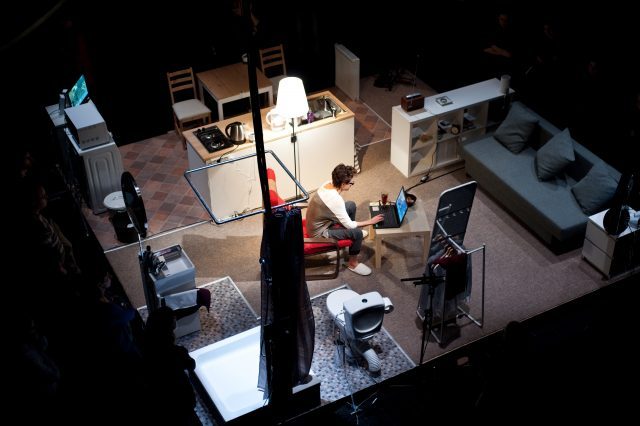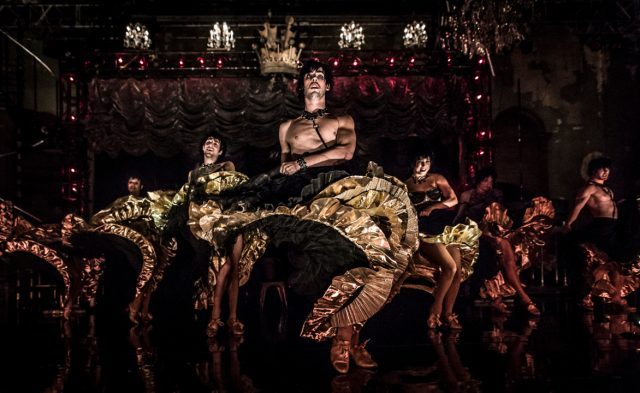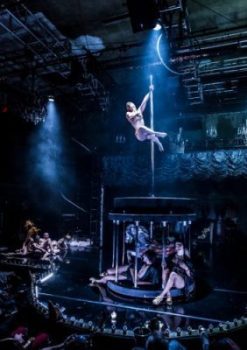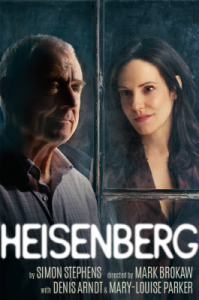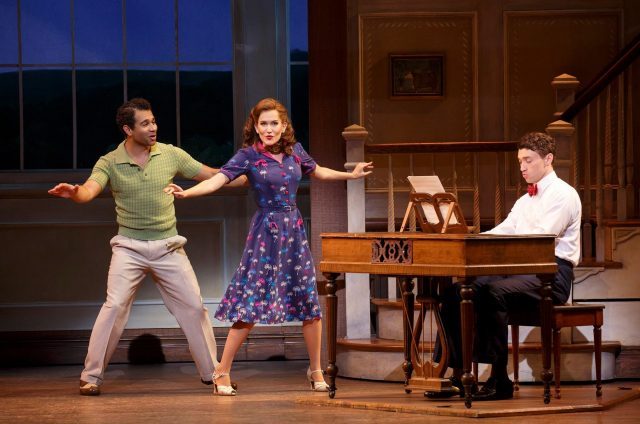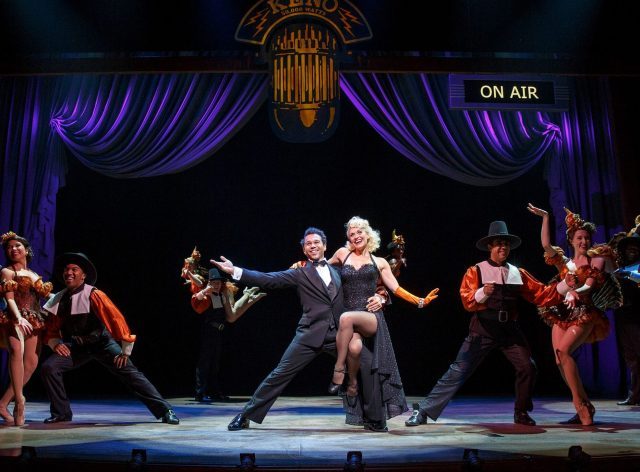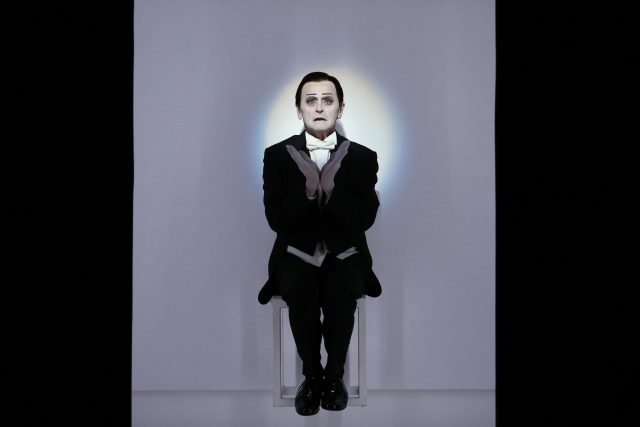
Mikhail Baryshnikov goes inside the mind of Vaslav Nijinsky in Robert Wilson’s LETTER TO A MAN (photo by Julieta Cervantes)
BAM Harvey
651 Fulton St.
October 15-30, $35-$130
718-636-4100
www.bam.org
Robert Wilson and Mikhail Baryshnikov, who teamed with Willem Dafoe in 2014 at BAM for The Old Woman, have returned to Brooklyn for another avant-Expressionist multimedia marvel, Letter to a Man. Continuing at the Harvey through October 30, the mostly one-man show is based on the diaries of Russian ballet dancer and choreographer Vaslav Nijinsky, who electrified the dance world before his schizophrenia had him in and out of mental institutions from 1919, when he was twenty-nine, until his death in 1950 at the age of sixty-one. Conceived, directed, and designed by Wilson, who has previously dazzled BAM audiences with such consciousness-expanding works as The Blue Rider, Einstein on the Beach, and Woyczeck, Letter to a Man is built around snippets from the diary Nijinsky kept in early 1919, shortly before being hospitalized for the first time. Performed by Baryshnikov, dressed in a sharp tuxedo and white-painted face, and various disembodied voices as if they’re echoing in Nijinsky’s head, the text, adapted by Christian Dumais-Lvowski and filled with references to God, sex, war, and death, features such devastating lines as “I am standing in front of a precipice into which I may fall. I am afraid to fall,” “I will eat everyone I can get hold of. I will stop at nothing,” and “I went in the direction of the abyss.” Baryshnikov moves exquisitely across the stage, with small dance flourishes that are breathtaking, particularly because no footage of Nijinsky performing exists. A. J. Weissbard boldly lights Wilson’s surreal set, with vaudeville-style flashing stage lights in the front, mesmerizing shades of white and blue, and dark shadows as Baryshnikov stands in front of a large window that could be in an asylum or a church. Wilson includes such elements as a burning cross, a fiery red circle that references Nijinsky’s paranoid drawings of eyes in the diaries, and branches that evoke Nijinsky’s only extant choreographic work, Afternoon of a Faun.
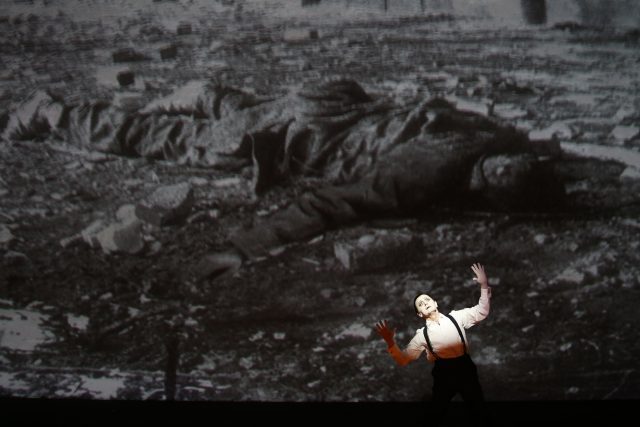
Mikhail Baryshnikov acts out Vaslav Nijinsky’s inner demons in multimedia work at BAM (photo by Julieta Cervantes)
The show gets its title from Nijinsky’s fourth notebook, which consists of letters he wrote but never sent; in this case, the “man” in question is Ballets Russes founder and artistic director Sergei Diaghilev, who is never specifically named in the diaries but had a severe falling out with his star dancer and lover after Nijinsky married Romola de Pulszky in September 1913. Although Wilson is treading on familiar territory from a technical standpoint, Letter to a Man is still a mind-blowing tribute to both Nijinsky and Baryshnikov, who along with Rudolf Nureyev redefined ballet in the twentieth century. The music, selected by Hal Willner, ranges from classical to pop, from Arvo Pärt and Henry Mancini to Tom Waits’s “I Don’t Wanna Grow Up” and Napoleon XIV’s novelty hit, “They’re Coming to Take Me Away, Ha-Haaa!,” bringing levity to the proceedings as Nijinsky’s battle with mental illness intensifies. The mysterious projections are by Tomek Jeziorski; Jacques Reynaud designed Baryshnikov’s costumes, which include a straitjacket, while choreographer Lucinda Childs collaborated on the movement. As with most of Wilson’s works, there are many striking, memorable images that are likely to stay with you for a long time, from Baryshnikov sitting in a chair up on a wall in an almost blindingly white space to him slowly inching backward on a dark beam, moving away from the aforementioned large window, from him approaching a projection of a battlefield to performing a little soft shoe. It’s a glowing tribute that is fraught with sadness, memorializing a special dancer who was overcome by a debilitating disease.
